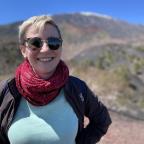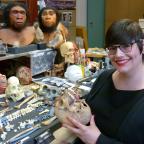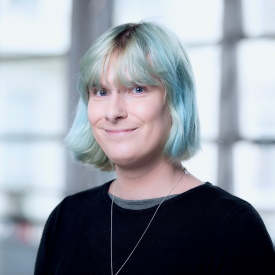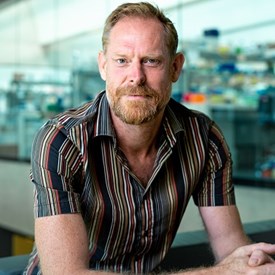Dr Linda Cremonesi (she/her) discusses her international research career in particle physics and examines how global attitudes towards LGBTQ+ individuals impact STEM careers.
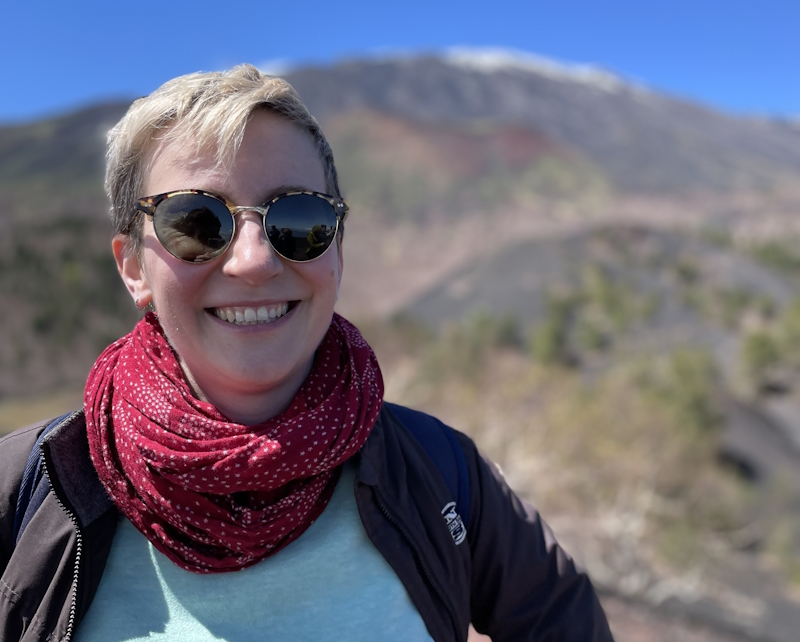
Growing up in a small village near Milan, I didn’t have many people to look up to, especially as a young lesbian woman. It wasn’t easy being out in Italy back then. When I came to London, I found a community where I could explore my identity more freely. At Queen Mary University of London, one of my lecturers was an out gay man, and for me, seeing a successful, openly LGBTQ+ academic was life changing. Seeing this lecturer live his life openly and without shame showed me that I could be both a scientist and true to who I am. This experience was pivotal, and it’s why I try to be visible and open about my identity today, in hopes that I can be a role model for others.
Physics picked me
I never thought I’d end up in particle physics - my path into this field was very unpredictable. I moved to the UK in 2009 as part of the Erasmus exchange programme during my third year at the University of Milan. Unlike most of the other students, when I arrived at Queen Mary University of London, I hadn’t yet picked a research project. The enticing projects were already taken, so I ended up choosing one on neutrinos, a topic I knew almost nothing about.
At that stage, I hadn’t yet taken the particle physics module in my Italian physics degree, so I had no real exposure to it. I found myself reading the Wikipedia page on neutrinos on my way to meet my project supervisor. That initial research sparked a curiosity in me, and I quickly became hooked. I ended up researching neutrinos throughout my research career to date. Neutrinos are fascinating particles; they’re incredibly tiny, rarely interact with matter, and can travel across galaxies undisturbed. After completing my masters at UCL, I returned to Queen Mary University of London for my PhD in particle physics.
Work and travel
Following my PhD, I’ve travelled to all the continents on Earth, mostly through my work, and now I’m back at Queen Mary University of London as a Fellow and Reader in Particle Physics. One of the most exciting projects I’ve worked on was with the ANITA experiment, which took me all the way to Antarctica. We were studying neutrinos which had travelled from outside our galaxy, using a radio detector attached to a giant balloon that flew above the ice for weeks at a time.
Travel has been a significant part of my career. While I’ve travelled all over the world for research, from Japan to the United States, Antarctica stands out as one of the most memorable. It was a surreal experience working in one of the most extreme environments on Earth. As an LGBTQ+ person, I’ve had to be mindful about where I travel for work. I’ve turned down opportunities to attend conferences in certain countries because I didn’t feel safe traveling there. Now that I’m in a more senior position, I’m always mindful of the safety of all participants when planning in-person meetings, ensuring everyone feels secure, no matter their identity.
Even in more inclusive environments, microaggressions and misogynistic comments can take their toll. I often felt like the only LGBTQ+ person in the room, and I was very aware of being a woman in a male-dominated field. But things are changing. There’s more awareness now about how inclusivity impacts the quality of work in science. Diversity of ideas comes from diversity of experiences, and we need more voices in science that reflect a range of backgrounds.
Future focused
While there’s been a lot of focus on encouraging women to enter fields like physics, we need to broaden the conversation to include other dimensions of diversity, such as race, disability, gender expression, and sexual orientation. We also need to address why people from underrepresented groups are leaving the field. It’s not just about increasing numbers but fostering a research culture where everyone feels welcome and supported. A crucial part of this is having difficult conversations about travel for LGBTQ+ scientists, so that we can work towards a research culture where LGBTQ+ scientists are not excluded from international opportunities because of their identity.

